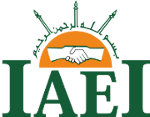ANALYZING ISLAMIC EMBEDDED OPTIONS IN STRUCTURED PRODUCT IN THE LIGHT OF MAQASID AL-SHARIAH
DOI:
https://doi.org/10.47498/tasyri.v10i2.208Keywords:
Islamic structured product, Maqasid al-Shariah, ‘Urbun, Wa’adAbstract
Islamic structured products are basically Shariah compliant structured product which applies the similar to its counterpart, conventional ones in terms of purpose, economic benefits and basic structural features. The difference is that Islamic structured products adheres to Shariah principles, avoiding riba (usury), gharar (uncertainty), zulm (injustices), and operates holistically in a Shariah compliant manner. This includes utilizing Shariah contracts approved by the SAC to structure the investment, and contains underlying assets that are permissible in Shariah. Hence the main aim of this work is to intricately elaborate the Shariah framework applied to develop the structured product in the light of Maqasid al-Shariah and discussed the current scenarios of the product implementation in Malaysia. It is found that, most of the Islamic structured products are embraced by the concept of ‘Urbun and Wa’ad to serve as Shariah compliant structured product. Although there are some issues to be considered by Shariah scholars in order to enhance the existing framework of the product.
Downloads
Downloads
Published
Issue
Section
License
- Hak publikasi atas semua materi informasi yang tercantum dalam situs jurnal ini dipegang oleh dewan redaksi/editor dengan sepengetahuan penulis. Pengelola Jurnal akan menjunjung tinggi hak moral penulis.
- Aspek legal formal terhadap akses setiap informasi dan artikel yang tercantum dalam situs jurnal ini mengacu pada ketentuan lisensi Creative Commons Atribusi-Non Commercial-No Derivative (CC BY-NC-ND), yang berarti bahwa hanya dengan izin penulis, informasi dan artikel Jurnal AT-TASYRI' dapat didistribusikan ke pihak lain dengan tanpa merubah bentuk aslinya untuk tujuan non-komersial.
- Setiap terbitan Jurnal AT-TASYRI', baik cetak maupun elektronik, bersifat open access untuk tujuan pendidikan, penelitian, dan perpustakaan. Di luar tujuan tersebut, penerbit atau pengelola jurnal tidak bertanggung jawab atas terjadinya pelanggaran hak cipta yang dilakukan oleh pembaca atau pengakses.






